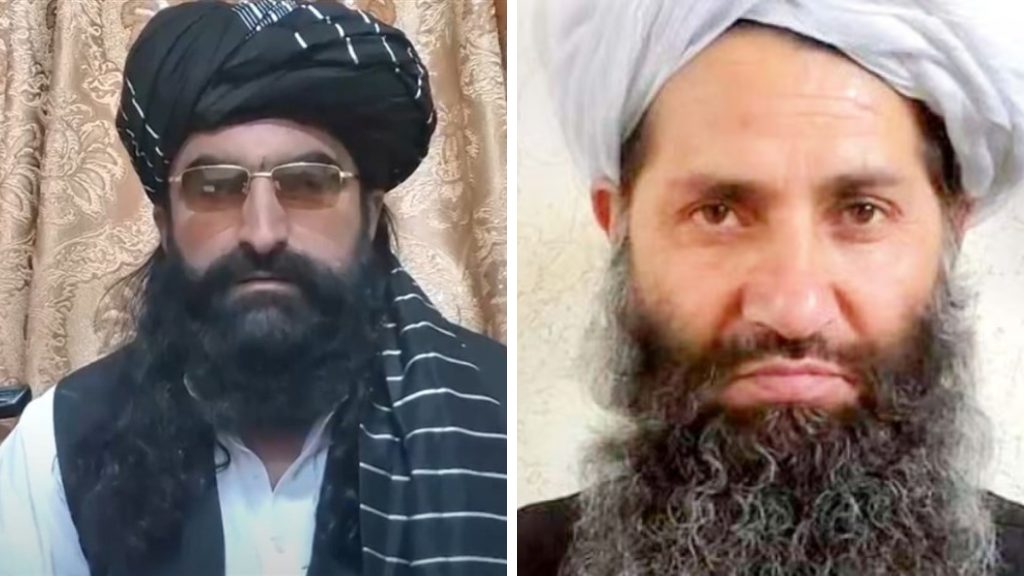Close Ties Between Afghan Taliban and TTP
The Afghan Taliban and the Tehrik-e-Taliban Pakistan (TTP) maintain a deeply interconnected relationship, according to the latest United Nations report. The UN Analytical Support and Sanctions Monitoring Team has revealed that the TTP continues to operate from Afghan soil and carries out large-scale terrorist activities in Pakistan with the Afghan Taliban’s backing. This close relationship has raised concerns about regional stability.
TTP: A Major Threat in Afghanistan and Pakistan
The TTP, also known as the Pakistani Taliban, operates with substantial support from the Afghan Taliban. The UN team states that while the Afghan Taliban has struggled to control the TTP’s growing influence, the two share a mutual commitment to overthrowing their respective governments. The TTP uses Afghanistan as a safe haven to plan and launch attacks into Pakistan, destabilizing the region.
In its July 2023 report, the UN Monitoring Team noted that the Afghan Taliban is either unwilling or unable to manage the threat posed by the TTP. The report described the TTP as a significant challenge for the Taliban regime, one that the latter cannot handle alone.
Ideological and Organizational Connections
The ideological bonds between the Afghan Taliban and the TTP are also significant. Both groups aim to establish strict interpretations of Sharia law in their respective countries. The Afghan Taliban achieved this goal in August 2021 when it seized control of Afghanistan, restoring its Islamic Emirate. Likewise, the TTP seeks to establish its own Islamic Emirate in Pakistan, fighting to overthrow the Pakistani government.
The TTP has been a longstanding ally of the Afghan Taliban. The TTP provided sanctuary to Taliban fighters and leaders when the Afghan Taliban faced heavy resistance from the Afghan government and foreign forces. During the Taliban insurgency, the TTP sheltered Afghan Taliban members, particularly from 2007 to 2013 when the Pakistani Taliban controlled significant parts of western Pakistan.
Mutual Support and Weapons Assistance
The UN report also sheds light on the material support provided by the Afghan Taliban to the TTP. Since the Taliban’s takeover of Afghanistan in 2021, the Afghan Taliban has supplied the TTP with sophisticated weapons, including NATO-grade equipment such as night-vision gear. This assistance follows the Afghan Taliban’s acquisition of vast amounts of U.S. and NATO military equipment left behind by Western forces after their withdrawal in August 2021.
The provision of such high-tech weaponry highlights the Afghan Taliban’s continued support for the TTP, which shares many of the same military objectives. These weapons have been critical in strengthening the TTP’s ability to carry out sophisticated attacks inside Pakistan.
TTP’s Training and Support from Al Qaeda
The UN report also emphasizes the role of Al Qaeda in supporting the TTP. Al Qaeda’s regional branch, Al Qaeda in the Indian Subcontinent (AQIS), plays a crucial role in training and assisting TTP fighters. AQIS has set up training camps in several provinces of Afghanistan, including Kandahar, Kunar, Nangarhar, and Takhar, where TTP operatives receive military training.
In addition, Al Qaeda provides operational support to the TTP, helping the group carry out attacks within Pakistan. The TTP has also been trained in suicide bombing techniques, with AQIS training suicide bombers in camps located in Kunar province. This collaboration is designed to enhance the TTP’s operational capabilities and shift its focus to high-profile, high-impact attacks on hard targets.
A Growing Threat in the Region
The TTP is now considered one of the largest terrorist groups operating in Afghanistan, with an estimated strength of 6,000 to 6,500 fighters. Despite this, some experts, argue that the Afghan Taliban itself should be seen as the largest terrorist organization in the region, given its control over Afghanistan and its support for groups like the TTP and Al Qaeda.
The Taliban’s close ties with the TTP, as well as its harboring of Al Qaeda and other terrorist organizations, paint a concerning picture for regional security. Many senior Taliban leaders, including Sirajuddin Haqqani, are listed as Specially Designated Global Terrorists by the United States, adding to the growing list of concerns about the Taliban’s role in global terrorism.
The Afghan Taliban and the TTP remain inseparable allies, sharing military, ideological, and operational resources. With continued support from Al Qaeda and the Taliban’s inability to curtail the TTP’s activities, the situation remains volatile. This unholy alliance between the Afghan Taliban and the TTP is a serious concern for both Afghanistan and Pakistan, as well as for broader international security.


